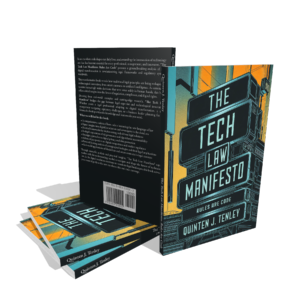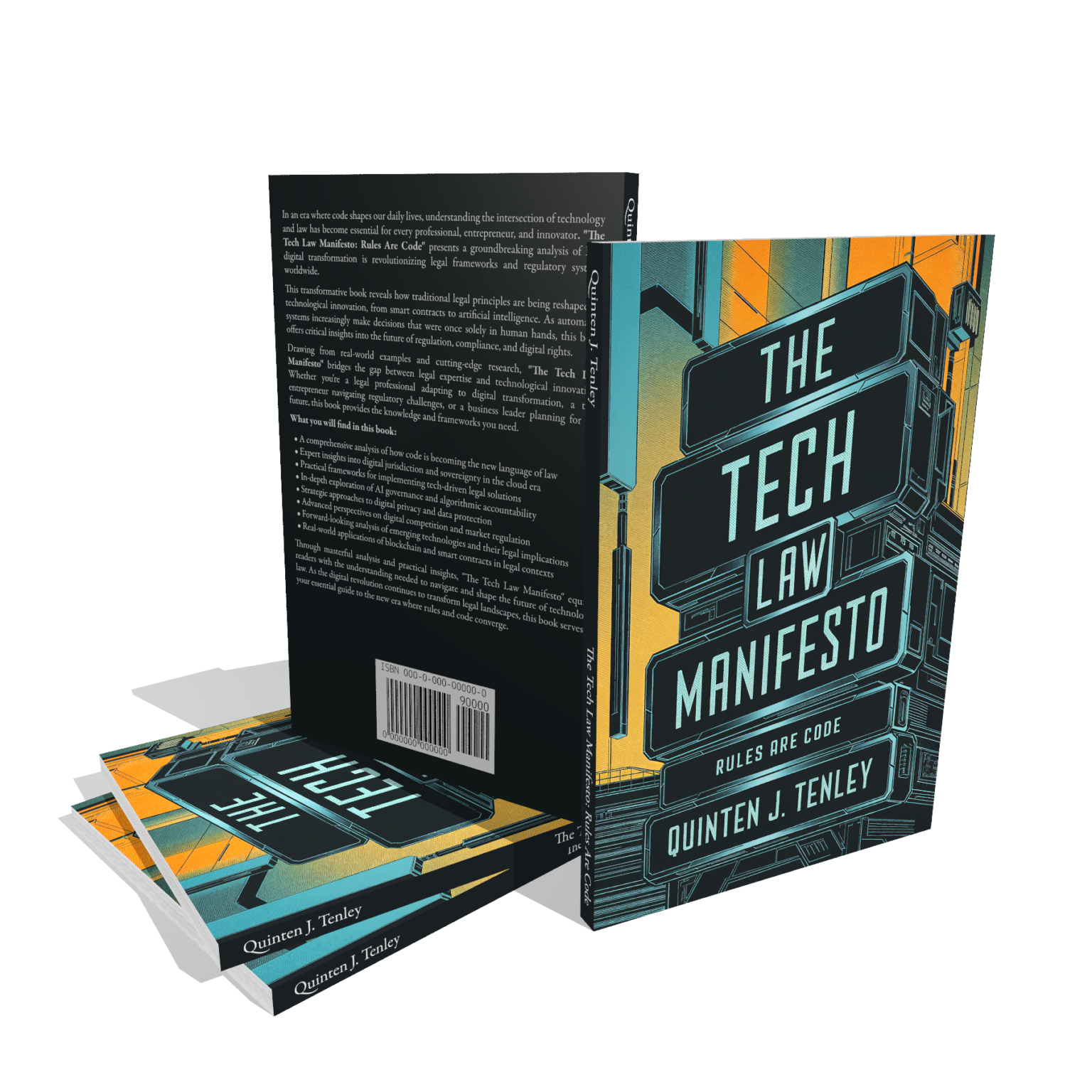The Tech Law Manifesto Review – Complete Guide to Technology Law and Digital Transformation

Technology law has become the cornerstone of modern legal practice, and “The Tech Law Manifesto: Rules Are Code” delivers essential insights for navigating this complex landscape. As digital transformation reshapes industries worldwide, legal professionals and tech entrepreneurs face unprecedented challenges in understanding how traditional legal frameworks adapt to emerging technologies. This comprehensive guide bridges the critical gap between technological innovation and regulatory compliance, offering practical solutions for smart contracts, algorithmic accountability, and digital ethics that every professional needs to master.
The rapid evolution of artificial intelligence, blockchain technology, and automated systems demands a new approach to legal thinking. This manifesto provides the strategic framework necessary for understanding how rules and code intersect in our increasingly digital world, making it an indispensable resource for anyone working at the intersection of technology and law.
What You’ll Discover
- Smart Contract Implementation: Master the legal implications and practical applications of blockchain-based contracts that revolutionize traditional agreement structures
- Algorithmic Accountability Framework: Learn essential strategies for ensuring transparency and fairness in automated decision-making systems across industries
- Digital Privacy Protection: Discover comprehensive approaches to data protection and privacy compliance in the era of big data and AI-driven analytics
- AI Governance Best Practices: Understand how to establish ethical guidelines and legal frameworks for artificial intelligence deployment in business contexts
- Regulatory Challenge Solutions: Overcome complex compliance issues with proven strategies for navigating evolving technology regulations
- Digital Transformation Legal Strategy: Transform your legal approach with future-ready frameworks that anticipate technological advancement and regulatory change
Why This Book Matters
Digital transformation isn’t just changing business operations—it’s fundamentally reshaping legal practice itself. As automated systems increasingly handle decisions that impact individuals and organizations, understanding technology law becomes critical for protecting rights and ensuring compliance. This manifesto addresses the urgent need for legal professionals to develop expertise in algorithmic accountability, digital sovereignty, and emerging regulatory frameworks that govern our connected world.
The book’s practical approach to complex legal concepts makes it immediately applicable to real-world scenarios. Whether you’re drafting smart contracts, implementing AI systems, or navigating data protection requirements, these insights provide the strategic foundation necessary for success in today’s tech-driven legal environment.
Key Features
This comprehensive ebook spans multiple chapters covering digital ethics, regulatory challenges, smart contracts, and AI governance. Available as an instant digital download, you’ll receive immediate access to practical frameworks, real-world case studies, and actionable implementation guides. The format allows for easy reading on any device, with printable checklists for compliance tracking. Also available as audiobook on Google Play Books and Spotify for convenient listening during commutes or professional development sessions.
Frequently Asked Questions
What exactly is technology law and why do modern professionals need to understand it?
Technology law encompasses legal frameworks governing digital innovation, artificial intelligence, data protection, and automated systems. Modern professionals need this knowledge because technology now impacts every legal decision, from contract automation to regulatory compliance, making tech law literacy essential for career success.
How does this book help with practical implementation of smart contracts and AI governance?
The manifesto provides step-by-step frameworks for implementing blockchain-based contracts and establishing AI governance protocols. It includes real-world case studies and compliance checklists that enable immediate application of these concepts in professional practice.
Is this book suitable for both legal professionals and tech entrepreneurs without law backgrounds?
Absolutely. The book bridges technical and legal expertise, explaining complex concepts in accessible terms while providing depth for experienced practitioners. Both legal professionals seeking tech knowledge and entrepreneurs needing legal insight will find valuable, actionable guidance.
Get Your Copy Today
Transform your understanding of technology law with this comprehensive guide to digital transformation and legal innovation. Available for instant download at just $6.99, this ebook provides exceptional value compared to expensive legal courses or consulting fees. Also available as audiobook on Google Play Books and Spotify for flexible learning. Purchase your copy through all major ebook retailers including Apple Books, Barnes & Noble, and Kobo to begin mastering the intersection of rules and code today.
Watch the Video Review

